#19th-Century Poetry
Text


“Love is a sacrament that should be taken kneeling”
—Oscar Wilde
#poets on tumblr#dark academia#aesthetic#spilled poetry#words#spilled ink#spilled thoughts#19th century#vintage#love poem#dark acadamia aesthetic#dark academia books#renaissance art#renaissance#poetry#dark academia lovers#vintage classics#dark acdemia#oscar wilde
148K notes
·
View notes
Text
Two Poems About Sunsets
Two great poets use the liminal language of twilight to express transition, longing, passion, memory, and grief.
Sunset Photo by Rose White//@AnkhRising8
Twilight is a time of transitions; no longer daytime, not quite night. Everyday objects go soft around the edges, taking on a mythic, magic edge as shadows lengthen, deepen. Songbirds seem to hold their breath, waiting for the first night…
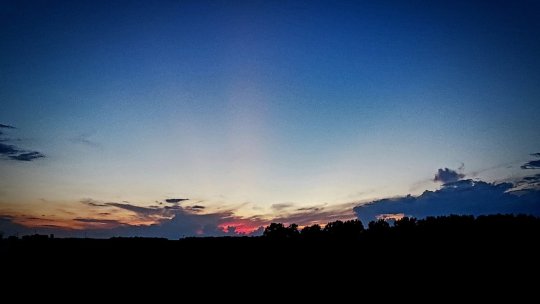
View On WordPress
#1800s#1889#19th-Century#19th-Century Poetry#20th Century Poetry#advice for poets#advice for writers#Alfred Lord Tennyson#Clenched Soul#Crossing The Bar#Erato#Grief#Hecate#Hekate#Liminal#Liminal Poems#Liminal Poetry#Liminality#Loss#Memory#Pablo Neruda#Poem of the Week#Poetry#poetry tips#Regret#Sunset#Thresholds#Transitional Poems#Transitions#writing tips
1 note
·
View note
Text
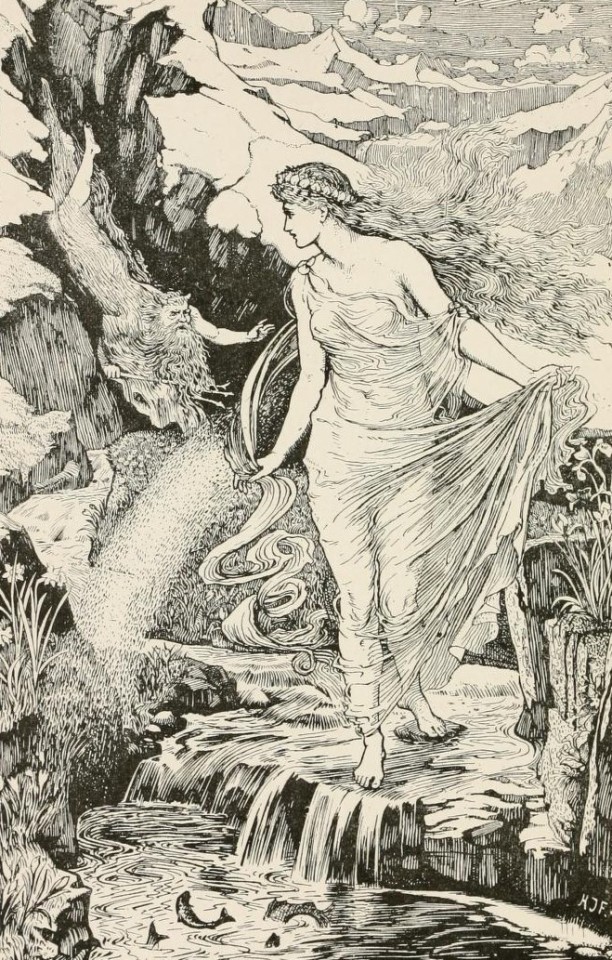
Arethusa, from Andrew Lang's The Blue Poetry Book by Henry Justice Ford (1891)
#henry justice ford#art#illustration#golden age of illustration#19th century#19th century art#british art#british artist#books#book illustration#poetry#poetry art#percy bysshe shelley#mythology#greek mythology#arethusa#classic art
4K notes
·
View notes
Text

#academia#19th century#vintage#victorian#reading#poetry#reincarnated lovers#reincarnation#story ideas#fiction#story#i love you#i love him#i love her#take my heart#lovers#passion#romantic#desire#relationship#couple#fearless#midnights#midnight
537 notes
·
View notes
Text
I'm tired of this generation, I want a man from the 1800's to invite me to a ball and dance with him.
#literature#dark academia#dark acadamia aesthetic#darcy#dorian gray#jane austen#light academia#aesthetic poetry#art journal#dark academia aesthetic#Bridgerton#regency#queen Charlotte#Edwardian#era#1800#mid 1800s#19th century#pride and prejudice
859 notes
·
View notes
Text

Midway in our life's journey, I went astray from the straight road and woke to find myself alone in a dark wood. How shall I say what wood that was! I never saw so drear - so rank - so arduous a wilderness!
- Dante Alighieri Inferno (1308) canto I, l. 1-3. Translation (1954) by John Ciardi. Oil painting (1814) by Caspar David Friedrich.
#wilderness#spirituality#literature#14th century#art history#inferno#art#life#poetry#dark academia#dante alighieri#academia#books#gothic#quote#19th century#reading#caspar david friedrich#dark#forest#🎨 📚#john ciardi
247 notes
·
View notes
Text
ATTENTION ROMANTICS, JANEITES, BYRONISTS, GEORGIANS, & OTHER 19TH CENTURY NERDS!
this website jane austen's music has resources all about the music jane austen composed by hand, like a link to this song captivity.
this website romantic-era songs has recordings of a bunch of music that was popular in the romantic era, including recordings of poetic works that were originally intended to be set to music. examples incl. lord byron's famous poems vision of belshazzar (a real banger!) & she walks in beauty (not what i expected having read it beforehand without it's music, but it was byron's own favorite to listen to). i really love this one the waters of elle by lady caroline lamb, also composed by isaac nathan. he was a famous jewish-english musician who later relocated to australia and introduced classical music there, & is thus sometimes called "the father of australian music" (apparently, according to his wiki, he was also the first person in the southern hemisphere to die in a tram incident after he got there... oddly specific factoid, but alright).
#literature#english literature#lord byron#romanticism#history#poetry#music#songs#19th century#nineteenth century#recordings#compositions#composers#isaac nathan#caroline lamb#romantic era#the romantics#the young romantics#romantics#romantic poetry#music history
95 notes
·
View notes
Text
Opinion — Imperfection —
Those we all must have -
To Butt out Heads,-
Superior —
And Fall on Soiled ground —
The Sky can tell you what is right,-
And the Patterns of the sand —
Though - we are imperfect -
We live on perfect Land —
#classical poetry#poetry#modern poets#19th century#original poem#emilydickinson#humanity#introspection#hope#perfection
71 notes
·
View notes
Text

December, from The Procession of Months (c.1889). All the poems were written by fifteen-year-old Beatrice Crane and illustrated by her acclaimed artist father, Walter Crane.
via contentinacottage.blogspot on pinterest
text id after cut off
[TEXT ID: "December" by Beatrice Crane.
Now wildly sweeps the wind
And wildly drives the sleet
DECEMBER fast draws nigh
Wrapped close from head to feet.
Her eyes glance restlessly
From shaken tree to plain,
The dark hair 'neath her hood
Is wet with frozen rain.
Her furry cloak she holds
With one hand round her form,
The other one lifts high
A torch to light the storm
Scance tree or shrub doth cheer
The dreary scene around,
Save for the moaning wind,
There is no other sound.
December's eyes grow sad
And fainter still her tread;
One hears a long, low sight
Which tells the year is dead. /end ID]
#beatrice crane#walter crane#illustration#illustration art#english artist#british artist#seasonal poetry#seasonal quotes#literature quotes#lit quotes#literary quotes#literary quotations#arts and crafts style#arts and crafts movement#19th century art#19th century illustration#victorian art#victorian illustration#english poetry#december#december quotes#winter aesthetic#1880s#1880s art
104 notes
·
View notes
Text

Erastus Dow Palmer (1817-1904)
"Sappho" (c.1858)
#sculptures#art#artwork#female portrait#sappho#erastus dow palmer#plaster#fine art#american artist#portrait of a woman#ancient greek poetry#poet#drapery#side profile#1850s#mid 1800s#mid 19th century#aesthetic#aesthetics#ancient greece
508 notes
·
View notes
Text
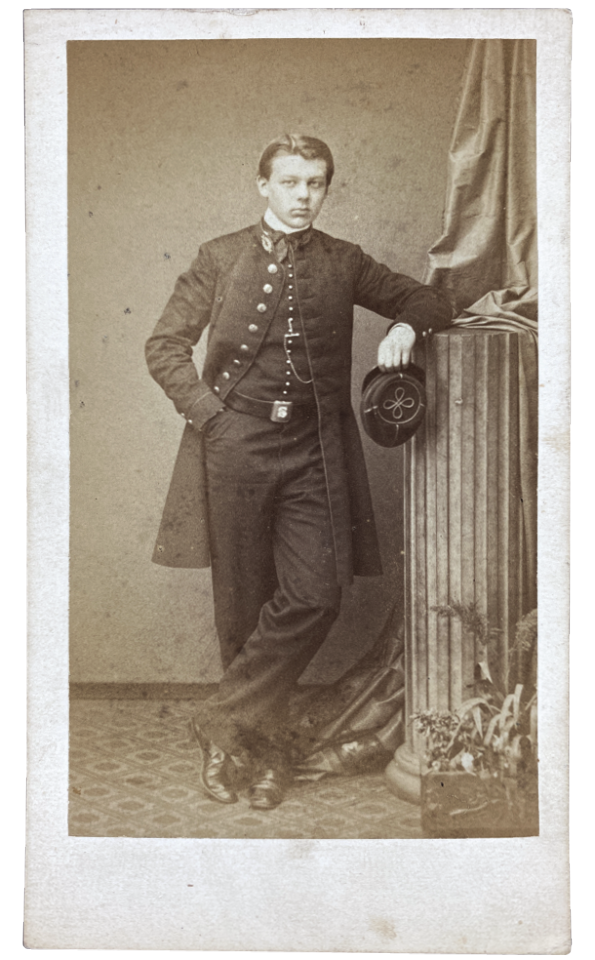
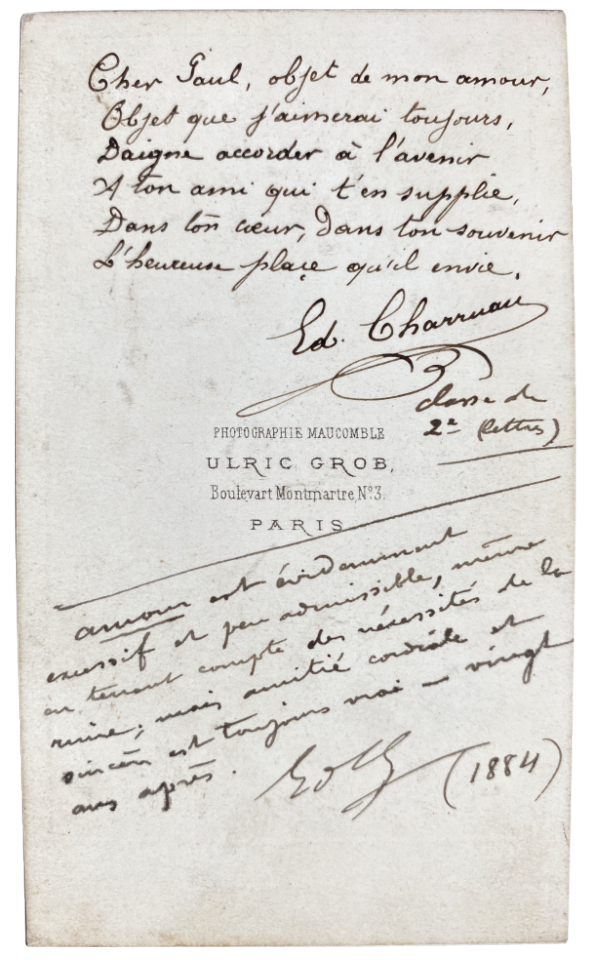
Carte de visite of a young cadet, c. 1860s. On the back, there is a very intriguing handwritten poem:
Cher Paul, objet de mon amour,
Objet que j'aimerai toujours,
Daigne accorder à l'avenir
A ton ami qui t'en supplie,
Dans ton coeur, dans ton souvenir
L'heureuse place qu'il envie.
Which Google Translate turns to:
Dear Paul, object of my love,
Object that I will always love,
Deign to grant in the future
To your friend who begs you,
In your heart, in your memory,
The happy place he desires.
Followed by a signature which might read "Ed Charruau" but I have difficulty making out the handwriting from here on. For that matter I am a little unsure whether that's really a "Paul" or a "Saul" or some secret third thing.
And below that, there is a note in a different, much messier hand that is largely illegible to me apart from a few tantalizing words—"amour" (underscored!), "admissible," "nécessités de la" (...what??), "toujours," "après"—dated 1884.
I can say with some confidence based on the style of the photography, the uniform, the photographer's backstamp and the card itself that this cdv dates no later than 1870, which means it is twenty-some years after this love(?) poem that someone writes this addition and I am absolutely dying for even a guess at what it reads! What happened? Did things work out for Ed and Paul(/Saul/?aul)??
Or... is this possibly actually all much less romantically charged in French actually (oh the irony), just guys being guys composing bro poems of platonic duditude to each other, as they do? Or less gay—could Paul/Saul/?aul somehow be a girl's name/nickname?
#or is it “cher GAUL” is our friend Ed pulling an Enjolras and declaring his feelings to France itself#tumblr please help me in my hour of need#the need to spill this long dead tea#19th century#1800s#1860s#1880s#19th century fashion#historical fashion#men's fashion#fashion history#military fashion#uniforms#19th century photography#cdv#carte de visite#gay interest#ephemera#poetry
208 notes
·
View notes
Text

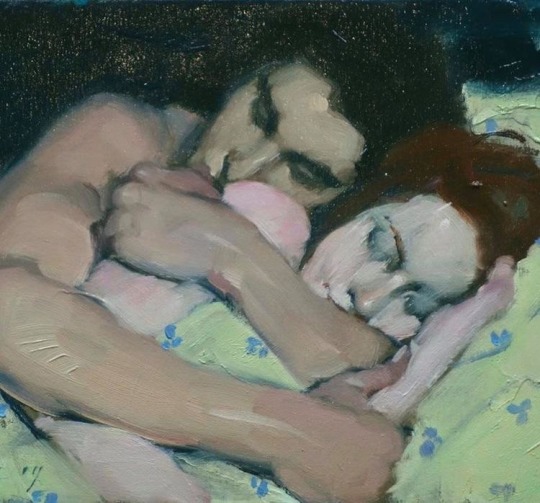
𝐼𝑛 𝑚𝑦 𝑑𝑟𝑒𝑎𝑚𝑠 𝐼 𝑐𝑜𝑚𝑒 ℎ𝑜𝑚𝑒 𝑡𝑜 𝑦𝑜𝑢 𝑎𝑛𝑑 𝑦𝑜𝑢 𝑐𝑜𝑚𝑒 ℎ𝑜𝑚𝑒 𝑡𝑜 𝑚𝑒 𝑎𝑛𝑑 𝑓𝑜𝑟 𝑎 𝑠𝑝𝑙𝑖𝑡 𝑠𝑒𝑐𝑜𝑛𝑑 𝑒𝑣𝑒𝑟𝑦 ℎ𝑎𝑟𝑑𝑠ℎ𝑖𝑝 𝐼 𝑒𝑣𝑒𝑟 𝑒𝑛𝑑𝑢𝑟𝑒𝑑 ℎ𝑎𝑠 𝑚𝑒𝑎𝑛𝑖𝑛𝑔.
#poets on tumblr#dark academia#aesthetic#spilled poetry#words#spilled ink#spilled thoughts#19th century#vintage#love poem#poetry#poems and quotes#love poetry
4K notes
·
View notes
Text

Just realized that “Ozymandias” and “The Foundations of Decay” have very similar themes
#percy shelley#percy bysshe shelley#romanticism#romantic poetry#19th century literature#emo#alternative rock#alternative#mcr#gerard way#my chemical romance#2000s rock#alt rock#frank iero#mikey way#ray toro#lindsey way#the foundations of decay#ozymandias#swarm
42 notes
·
View notes
Text
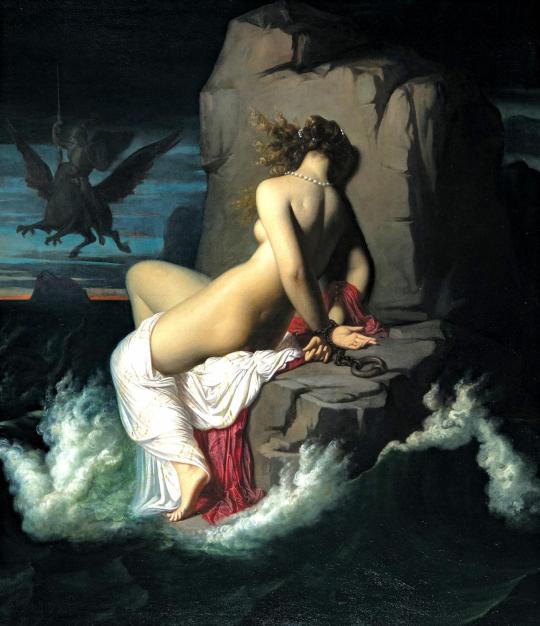
Angelique by Léopold Burthe (1852)
#leopold burthe#art#paintings#fine art#19th century#19th century art#neoclassicism#neoclassical#neoclassical art#painting#french art#french artist#american artist#poetry#poetry art#orlando furioso#angelica#ruggiero#hippogriff#classic art
4K notes
·
View notes
Text

Emily Dickinson's handwritten manuscript of her poem "Wild Nights – Wild Nights!" | 1861
115 notes
·
View notes
Text
listened to the in our times episode about robert burns, and weirdly enough, the most memorable line was '...perhaps if wordsworth hadn't gone to cambridge, he'd have written in cumbrian dialect. conversely, attending university might've ruined robert burns.' and now i can't stop imagining the alternative reality where wordsworth had preserved rural cumbrian dialect by writing his poetry in it. my hearts weeps.
#cumbrian dialect is very close to lancashire dialect in places so i hold it very dear#i just donated a little money to a local publisher who were crowdfunding to publish an edition of a 19th century miner's poetry#using local dialect from my village.#i'm desperate to read it. i'm desperate for the dregs of what holds me to the land.#i'm terrified of being americanised or internetised or londonised or home-counties-ised
44 notes
·
View notes